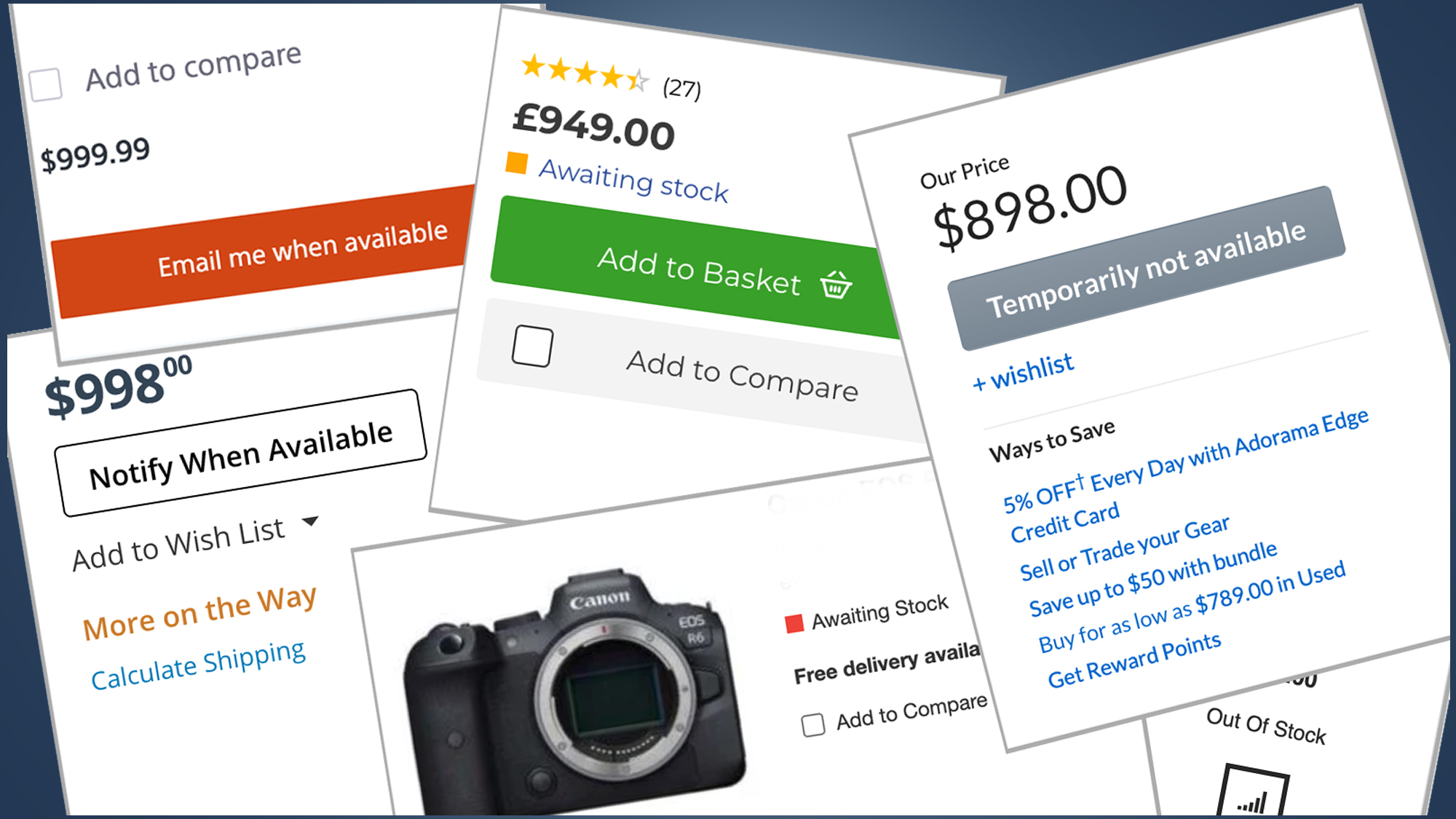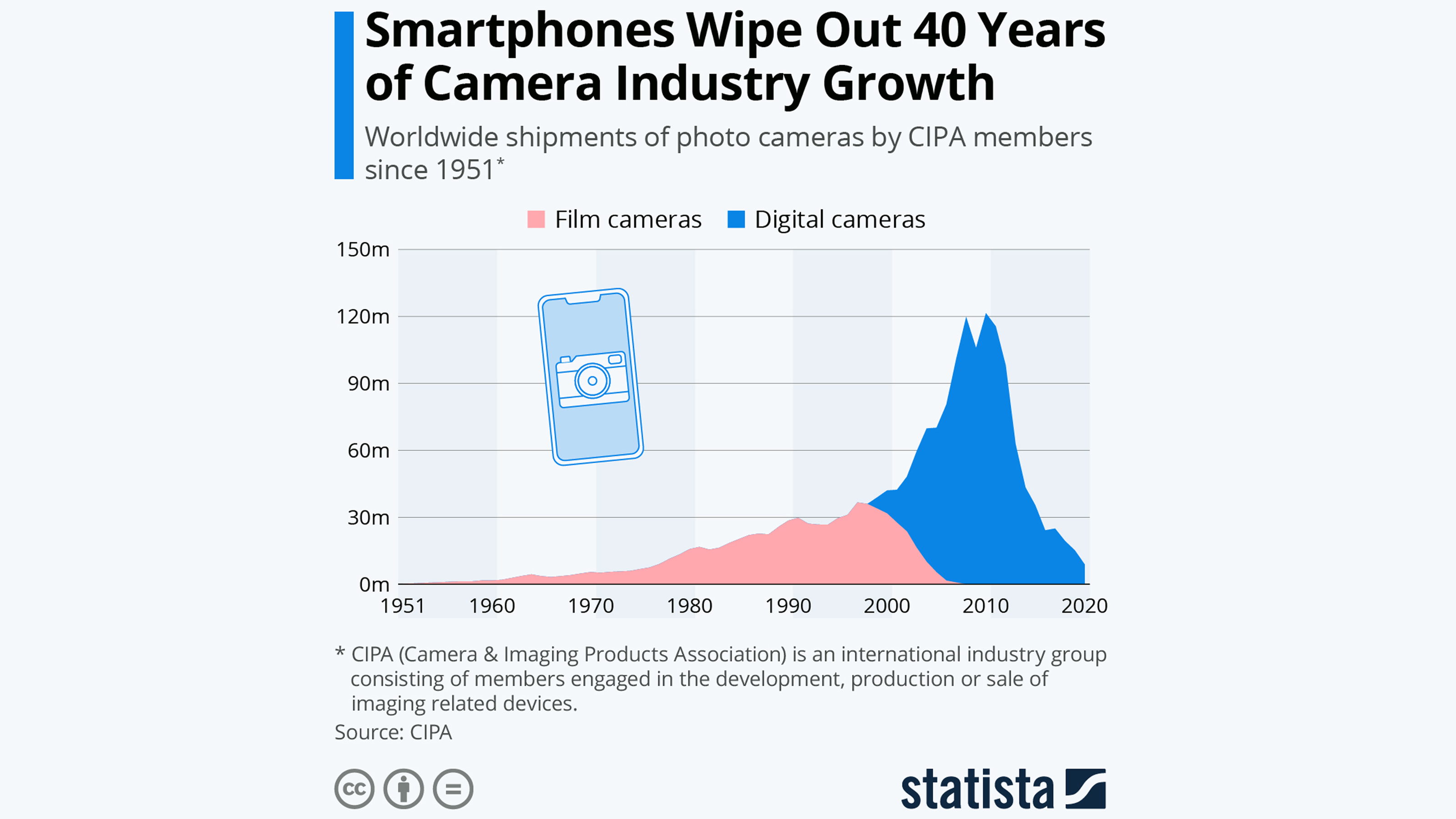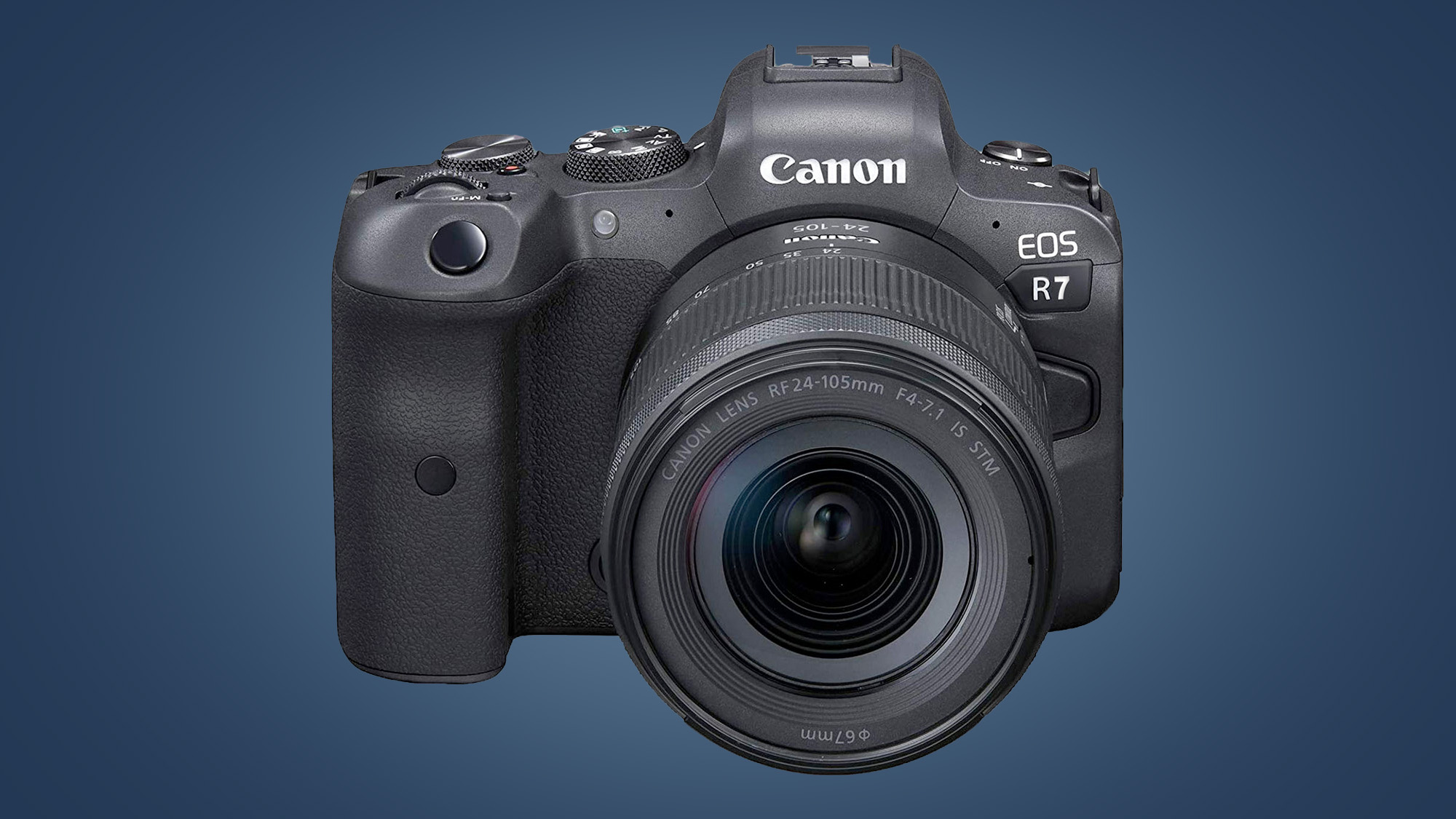You can’t buy a cheap mirrorless camera because a perfect storm blew them away
The last two years have been a bonanza for professional photographers. But for those of us who want an affordable mirrorless camera? Not so much. The good new options, like the Sony ZV-E10 or Fujifilm X-S10, are often frustratingly difficult to find in stock. And the cheaper mid-range classics, from the likes of Canon and Nikon, haven’t been updated in years.
The obvious explanation – the global chip shortage – is only part of the problem. It’s been whipped into a superstorm because manufacturers, particularly Sony and Canon, have seemingly given up on affordable mirrorless cameras. While professional, full-frame systems get all the love, those who want their smarts in a less financially-bruising package have been left feeding on relative scraps.
Not that it’s impossible to buy a cheap, modern mirrorless camera – stock shortages vary by region, and fine new options like the Nikon Zfc are widely available. But our temperature check of the big manufacturers and retailers in the US and UK shows that the ‘enthusiast’ market is probably less-than-enthused with the options you can currently buy.
Still, it’s not all doom and gloom. While this perfect cyclone of chips shortages and market shifts continues to rage, this isn’t the end of entry-level mirrorless cameras, despite the radical improvements of smartphones. In fact, there are reasons to believe that the clouds will part later this year and the sun will again shine down on photographers who want modern, smartphone-beating cameras for less than the cost of their car.
Waiting games
How bad are the shortages of cheap mirrorless cameras? It depends on the brand and country you’re shopping in, but it varies from ‘very bad’ to pretty frustrating. The worst affected for cheap and mid-range options are Sony (in both the US and UK) and Fujifilm (in the UK). Which is a shame, because both have made some of the best affordable mirrorless cameras in recent years.
In Sony’s official stores in the US and UK, the entire mid-range A6000 series (that’s the A6000, A6100, A6400 and A6600) are out of stock, along with the new Sony ZV-E10. This isn’t too surprising, as Sony Japan announced in December 2021 that it was temporarily suspending orders for the Sony A6600, ZV-E10 and A7C, and permanently shuttering the Sony A6100 and A7 II.
Clearly, the situation hasn’t improved since then. But this means the cheapest mirrorless camera you can currently buy in the Sony store is the $1,999 / £1,750 Sony A7 III. Not exactly affordable for most non-pros right now. That camera is also the perfect example of recent pricing trends – while it arrived in 2018 as entry-level full-frame option, its Sony A7 IV successor has ascended to a different price stratosphere of $2,499 / £2,400 / AU$$4,299 (body-only).

The Sony situation is also mirrored by Fujifilm in the UK. Of the 15 sub-£1,500 camera options in Fuji’s store, only six are in stock. Sadly, this means that most of the kit options for the excellent Fujifilm X-S10 and Fujifilm X-T4 – two of the best mid-range mirrorless cameras around – aren’t available. We’ve asked Fujifilm for comment, but it’s likely that the twin winds of global chip shortages and Brexit-related issues are causing the pain there.
It’s possible to find some of these cameras at retailers, but online stores aren’t collectively fairing much better. Two of the biggest in the US are B&H Photo Video and Adorama. From B&H’s range of 130 mirrorless cameras in the sub-$1,500 price bracket, a massive 54 models (or 41%) are out of stock. At Adorama, 34% of its sub-$1,500 cameras (that’s 66 out of 192) are unavailable to buy.
The situation is even worse for UK retailers. In the sub-£1,500 mirrorless camera bracket, Park Cameras has a huge 72% of its range marked as either ‘out of stock’ or ‘awaiting stock’. At Wex Photo Video, 62% of its range in that category have the dreaded ‘awaiting stock’ red marker. In other words, the majority of cheap mirrorless cameras are still unavailable to buy in UK photography stores.
Old school
But it’s not just about chip shortages. While stock for Canon and Nikon’s affordable mirrorless cameras is generally better, you’ll probably have to blow dust off the boxes, as neither as shown much willingness to launch new models.
In the last two years, we’ve only seen two ‘cheap’ mirrorless cameras from those camera giants – the impressive Nikon Zfc and the disappointing Canon EOS M50 Mark II. Yes, smartphones are a big reason why, along with the launch of the new full-frame Nikon Z and Canon RF systems. But with dwindling stock of older models like Canon EOS M100, your options are increasingly limited, unless you widen your search to include DSLRs.
So is this all simply the shifting sands of a market realities, the new normal for cameras? To an extent – it’s no secret that camera sales have been on a scary rollercoaster drop for the last decade, and that’s prompted manufacturers to migrate to the safer lands of professional cameras. Computational photography is good, but you won’t see rows of iPhone 13 Pros on the sporting sidelines anytime soon.

But it also isn’t true that there’s no viable case for cheap or mid-range mirrorless cameras anymore. According to BCN, which gathers data from around 40% of Japan’s market, the top ten best-selling cameras in 2021 were all exclusively in that bracket, with no full-frame cameras or DSLRs in the list.
Okay, the Japanese market is different from the US and Europe and BCN’s data isn’t the most comprehensive, but being a photographer clearly also doesn’t have to be a binary choice between a smartphone and a professional full-frame camera. And fortunately, the signs are promising that the affordable mirrorless camera space will get a much-needed injection of new models later this year.
Signs of life
For photographers who prize smaller and more affordable mirrorless cameras than the Nikon Z9s of this world, this year has got off to a promising start. We’ve seen the arrival of two Micro Four Thirds in the form of the Olympus OM-1 and Panasonic Lumix GH6. Neither could be classed as ‘cheap’, but their systems have historically been havens for amateur photographers and videographers – so the arrival of two new flagships is a promising sign.
But the really exciting stuff is likely to come later this year. It’s going to be a big year for Fujifilm, which has long occupied the sweet spot for those who prize value as highly as dynamic range. Its X-Summit conference in May is expected to see the arrival of the flagship Fujifilm X-H2. This is again unlikely to be a budget model, but we could also hear news about updates to its more beginner-friendly models (and hopefully an easing of those stock issues).

Perhaps the biggest news, though, is that Canon is rumored to be launching three affordable EOS R mirrorless cameras in 2022. These are expected to include a new APS-C model, the Canon EOS R7, and a long-awaited successor to the full-frame Canon EOS RP, which offered incredible value when it landed back in early 2019.
This all means that the deflated budget space in the mirrorless camera world, exacerbated by chip shortages, could well start to inflate again by the end of 2022. As much as we like the value offered by cheap cameras like the original Canon EOS M50 and Fujifilm X-T200, we’re very much looking forward to seeing some successors that pack some of the tech seen in their pricier siblings.
For all the latest Technology News Click Here
For the latest news and updates, follow us on Google News.
